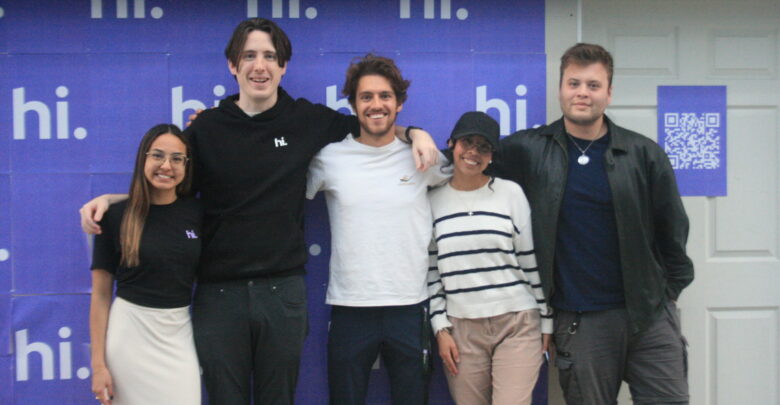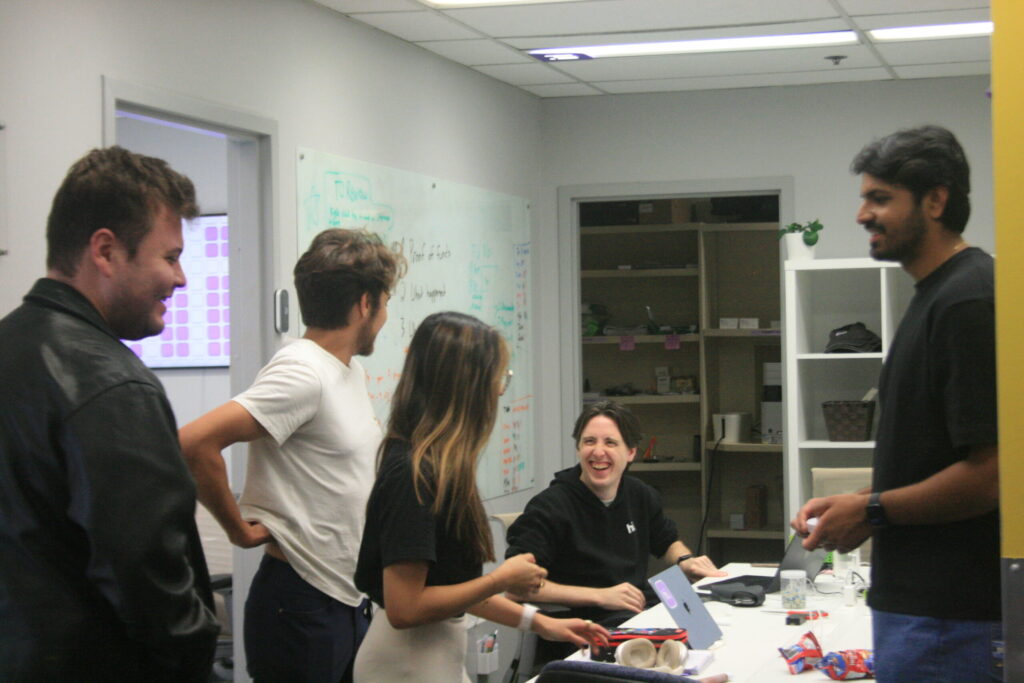Hi Finance connects students to funding and financial advice
The student-led organization has advised over 1,000 university students with tuition aid, tax help, and financial planning.
 Evan Cruickshank
Evan CruickshankHi Finance, a student-run financial advisory service founded at the University of Alberta, is expanding its operations. The organization, which helps students access funding, file taxes, and improve financial literacy, has seen more than 1,000 new sign-ups this semester alone.
The Gateway sat down with Zack Prusko, the founder and chief executive officer (CEO), as well as Angelique Loesel, the co-founder and chief operating officer (COO).
“We’ll help them with everything from student aid, so we help on their tuition through grants and student aid through savings and then taxes will help them manage their taxes annually,” Prusko said.
According to Prusko, most services at Hi Finance are offered for free, but they charge $1,499 for connection to a student financial advisor.
Aiming to alleviate financial worries for students
Hi Finance receives money through grant funding and tax credits. Their goal is to help students manage their finances throughout their time in university. They also emphasize student empowerment, and aim to educate students while also guiding them through their finances.
“Most students are very stressed about their money. They don’t know what’s happening after graduation … [they have] all these questions and all these worries, we take [them] out of students’ head[s] and put [them] in ours so we can obsessively stress about their finances for them,” Prusko said.

Hi Finance was originally started by Prusko, who graduated with a degree in finance from the U of A. Prusko founded Hi Finance after working in banking and seeing students struggle to access financial resources. Angelique Loesel joined after discovering the company through a case competition and now oversees marketing and operations. Inspired by Hi Finance’s mission, Loesel offered to volunteer with the organization and soon transitioned into a full-time role managing marketing and operations.
The team quickly expanded as demand for their services increased. Hi Finance is currently a team of nine, and they’re opening a new location in HUB Mall, set for 2026. Despite the expansion, Hi Finance still tries to maintain a collaborative and open environment.
Hi Finance has experienced significant growth over the past year, strengthening its presence at the U of A. The organization reported more than 1,000 new signups this year, while last year over 2,000 students attempted to book appointments. According to Prusko, students constantly tell him they wouldn’t be in school without the help of Hi Finance.
“I always like to describe it as you are working on a group project and you’re with the best people in the class and they are also your best friends,” Loesel said.
Prioritizing social responsibility over profit
Hi Finance is building partnerships around the university community. They have built partnerships with the Campus Food Bank, the University Health Centre, as well as numerous student associations. They are also partnering with Macewan University and their work-integrated learning program (WINL). According to Prusko, they are planning to expand to Calgary and looking at contracts with the University of Toronto.

The organization recently launched their mobile app. Prusko plans for the app to allow users to communicate with advisors and track deadlines in the future. They are also working one an automated tax system, similar to TurboTax.
Prusko and Loesel emphasized their priority of social responsibility over profit. Hi Finance is currently in the process of becoming a B-Corp. This would mean they meet high standards of social and environmental performance, as well as accountability.
“You have to maintain people and planet,” according to Prusko.
Some of their earlier challenges were building trust among the student body. Now, their issue is scaling fast enough to meet the increasing demand for their services. Prusko stated that one thing he wished he did differently was asking for help sooner. He also said that this translates to students as well, and that they should ask for help when they need it.
As demands for their services grow, the team hopes that they can make financial support more accessible. They want fewer students to put their education on hold due to financial barriers.




